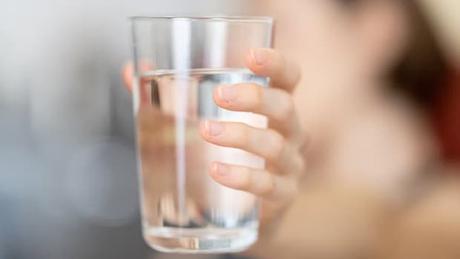‘Drink enough water’ is something we all have grown up hearing. The importance of water and hydration needs no introduction. It keeps up the body’s water balance and helps flush out toxins, leading to overall nourishment. But did you know that drinking too much water can work negatively on our body? You heard us. Parmeet Kaur, senior dietician at Narayana Hospital in Gurugram, states, “Drinking excess water than normal tends to increase your total blood volume and also pressures your kidneys into working overtime so as to filter excess water out of your circulatory system.” This may over-burden the heart, increase stomach irritation and cause water intoxication.
Also Read: Drink Warm Water Before Bed For A Healthy Living
What Is Water Intoxication?
As per experts, water intoxication is a condition that occurs from drinking too much water. It upsets the electrolyte balances in the body and can decrease sodium levels in the blood, leading to a condition called hyponatremia.
What Are The Symptoms Of Water Intoxication Or Overhydration?
The common symptoms of hyponatremia due to intoxication are:
Nausea:
People drinking excess water often gets drowsy and feels like vomiting due to the electrolyte imbalance in the body.
Headache:
People experience throbbing headache all through the day. Excess water in the body causes the body’s salt levels to go down and the cells to swell, leading to headache.
Disorientation:
Drinking too much water causes your kidneys to work too hard to remove the excess amount. This may make people feel tired and disoriented at times.
Discoloration of skin:
With overhydration, you will notice swelling or discoloration of feet, hands, and lips. Basically, with the swelling of the cells, you may also experience some swelling in your skin.
Also Read: Why You Shouldn’t Drink Water Immediately After Meals

Image Credit: iStock
How Much Water Is Too Much Water?
Health experts and nutritionists suggest that our daily water intake depends on various factors including age, gender, body weight, activity levels, metabolism, and medication. In fact, the water intake level also depends much on our environmental conditions.
How Much Water Should You Drink in a Day?
The Institute of Medicine has established guidelines for adequate water intake, which state – a healthy adult must drink about nine to 13 cups of fluid per day on average.
Here’re 5 Side Effects Of Drinking Too Much Water:
1. Hyponatremia:
As mentioned earlier, drinking excess water may decrease the sodium level in the body. This health condition is referred to as hyponatremia. People with heart and kidney conditions are dubbed to be at higher risk of hyponatremia.
2. Muscle Cramps:
A study published in the BMJ states that excess water intake dilutes sodium and other electrolytes in the blood, thus decreasing sodium conditions in the body. Lower sodium levels in the body may further lead to health issues like muscle cramps.
3. Frequent Urination:
Excess water intake leads to excess urination; meaning, the kidneys work constantly when you consume too much water. This further dehydrates the body and creates water imbalance. Besides, studies suggest, frequent urination adds stress to our kidneys.
4. Affect Liver:
Water, which often contains high iron content, may affect the liver negatively. We know the body needs iron to transport oxygen in the blood. We generally get iron from food that easily gets absorbed in the body; however, it is exactly the opposite of water. The body cannot easily absorb iron from water, further affecting liver health.
5. Diarrhea:
Overhydration causes hypokalemia or a decrease in potassium levels in the body. This may result in diarrhea and prolonged sweating. According to a report on the Cleveland Clinic website, hypokalemia often affects our digestive tract directly, which leads to issues like vomiting and diarrhea.
How Long Does It Take To Recover From Overhydration?
Recovery from overhydration depends much on the severity of the symptoms. If the level of water toxicity is high, then one must consult a health expert for proper guidance and medication. And always remember, moderation is the key!
Disclaimer: This content including advice provides generic information only. It is in no way a substitute for qualified medical opinion. Always consult a specialist or your own doctor for more information. NDTV does not claim responsibility for this information.
Featured Video Of The Day
Best Pakoda Recipes | Easy Recipes by NDTV Food

